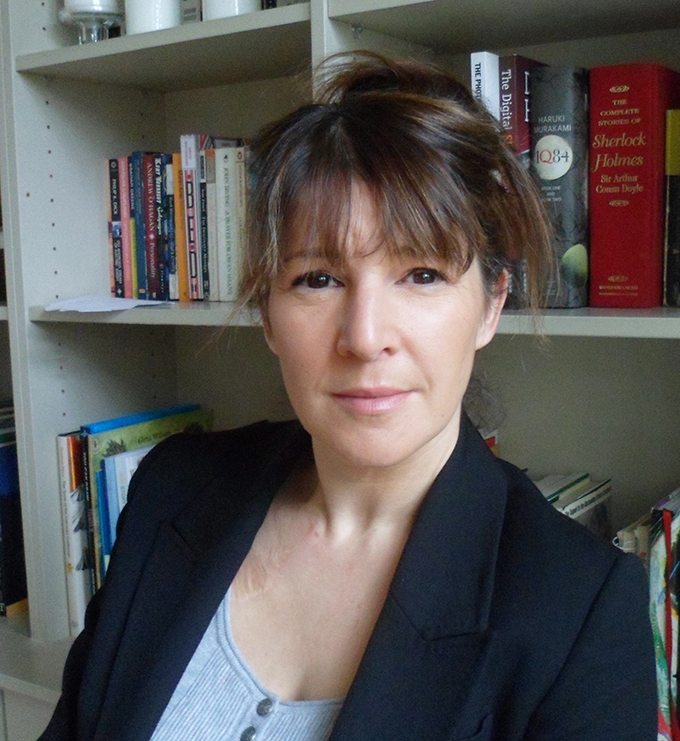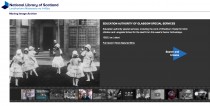Caroline currently heads up Creative England’s Film Enterprise Fund, investing £2m to support the growth and sustainability of film businesses outside London. Film Enterprise works with businesses on an individual basis to design made-to-measure programmes of business support to help entrepreneurs unlock opportunities, develop creative strategies, refine their business models and attract increased levels of corporate investment. In addition to her role at Creative England, Caroline works with emerging writing and directing talent at her production company, Universal Spirits. Her next feature The Incident from writer/director Jane Linfoot will shoot this summer in Yorkshire.
Here, she tells us about her first 5 jobs…
As a teenager, I lived in a small village with only a couple of buses a day so getting a Saturday job was essential if I was to have any chance of a social life and seeing my friends. The fact that my bright lights, big city experience was played out in the small market town of Market Harborough didn’t seem to put me off. So I got a job working in a shoe shop, setting off at 6.30am to take the morning bus and stand shivering on the empty streets until somebody came to open up at 9am. In spite of the ridiculous ‘commute’ and a lot of time looking at bunions (we catered mainly for old ladies) it was a great introduction to the world of work. The main revelation was that the other women who worked in the shop seemed not to notice that I wasn’t an adult and were happy to share their lives, secrets and dirty jokes with me. It taught me that when so much of your life is spent in the company of colleagues, it’s really important that you like them!
I went to Liverpool University to study English and after I left was pretty directionless in terms of a career, other than knowing that I vaguely wanted to work in ‘the arts’ and was keen to stay in a city I’d grown to love. Sadly Merseyside in the late 80’s was hardly bursting with opportunity so I spent most of my time volunteering in the marketing department at the Playhouse theatre while working in bars and restaurants in the evening. Two of my jobs were at real Liverpool institutions (Peter Cavanagh’s in Toxteth and Zorba’s in the city centre) and it’s great to still bump into people today who remember them as fondly as I do.
Eventually, I had to accept the fact that a brilliant arts career was not going to come knocking on the door of a Greek restaurant and so I started applying in a rather random manner for anything I spotted in Monday’s Guardian. When I was offered my first interview it was because one of the short-listed candidates had dropped out, so I was relatively relaxed in the assumption that I was going through the motions and this would be good interview practice. Perhaps my relaxation was perceived as confidence because surprisingly I landed my first ‘proper’ job as an administrator for a council-run media centre. In spite of the shock of having to move to Swindon, it was a brilliant opportunity – I had a fantastic boss and was really encouraged to stretch myself. Within a year I was learning about production as a co-ordinator on a short film by a young director who was trying to win a place at the National Film and Television School. Many years later I met up again with the director (David Yates) who by that point had directed two Harry Potter movies.
I was lucky enough to experience a real fast-track of opportunity and challenge in Swindon, and within a couple of years was working as the director of a public/private sector arts foundation. But I hankered to move back up North and have a bit more independence so after taking a job working for a ballet company (not as a dancer but still a big mistake!) I took the plunge into the world of freelancing. Although financially challenging it was a really exciting time working with a whole range of organisations from theatre companies, to music festivals to visual artists. Eventually I also found some more regular part-time work running a media training course for a film workshop in Sheffield.
That last role brought about one of those chance opportunities that can change your professional ambitions almost overnight. Channel 4 had circulated a tender document to the film workshop asking for documentary ideas for a new series called ‘Battered Britain’ they were commissioning. I had never written up a programme proposal (let alone produced anything myself) but there was a very talented director on the course that I was running, so collectively we decided to give it a go. Within weeks we had been given the go-ahead to make the programme and I was looking blankly at the cameraman as he asked me for the Call Sheet (a crucial bit of production paperwork that I had no idea even existed). A couple of months later we had finished the documentary and I had given up my job. A year later I had set up a company with the director, had made one music promo and was maxing out my credit card every month. But who cared, I was a producer!
More: Twitter
//////
We’ve asked professionals in creative industries what jobs they have had in the past to get their foot through the door (or at least pay the rent). For more in the “My First 5 Jobs” series look here.















Comments